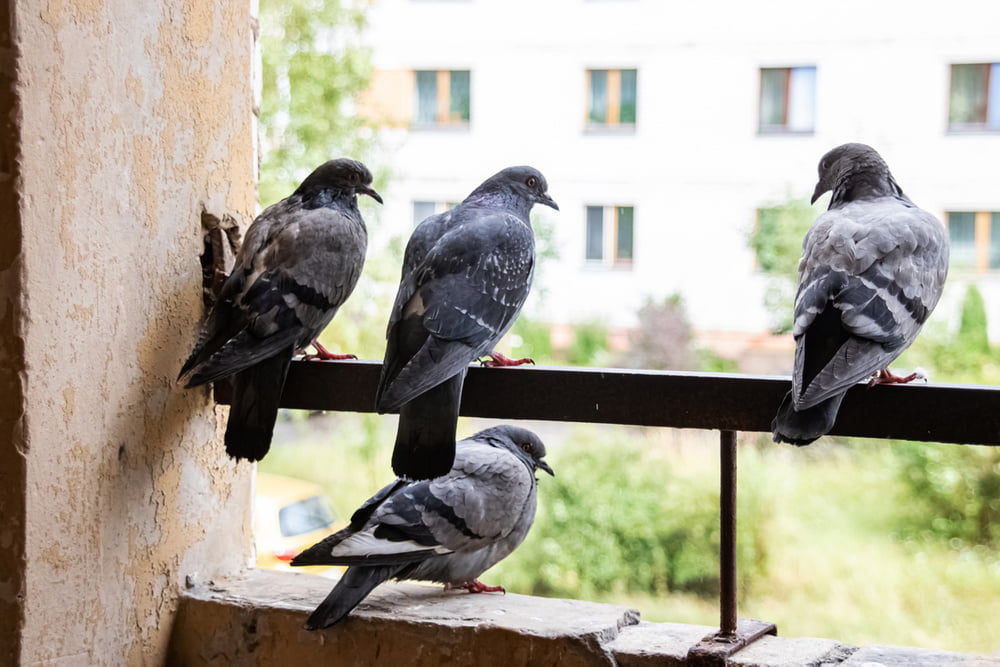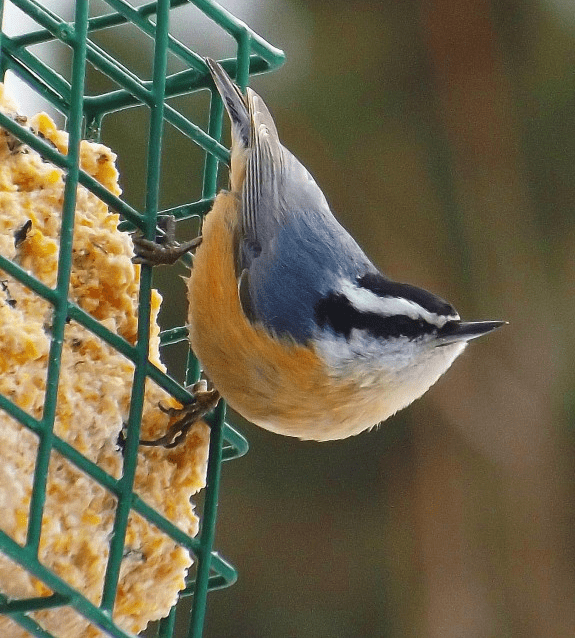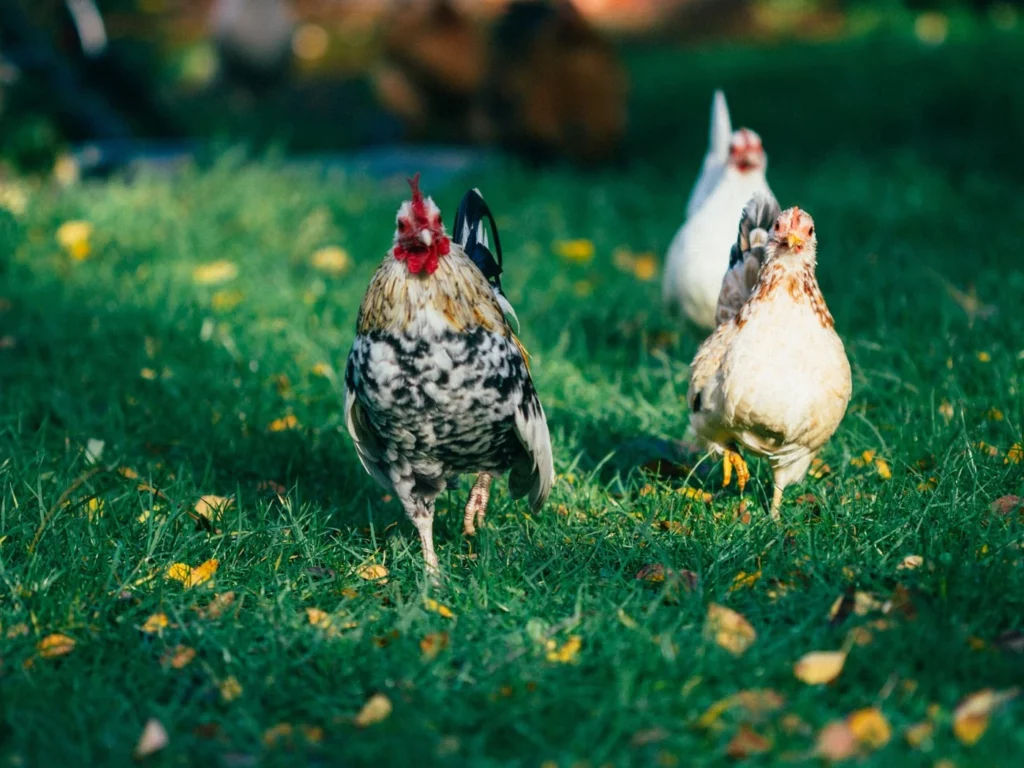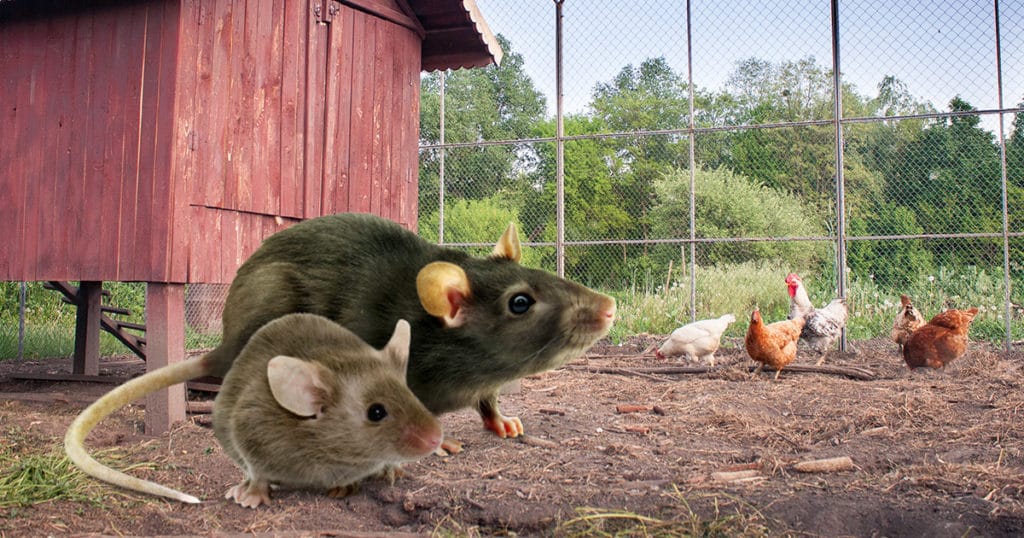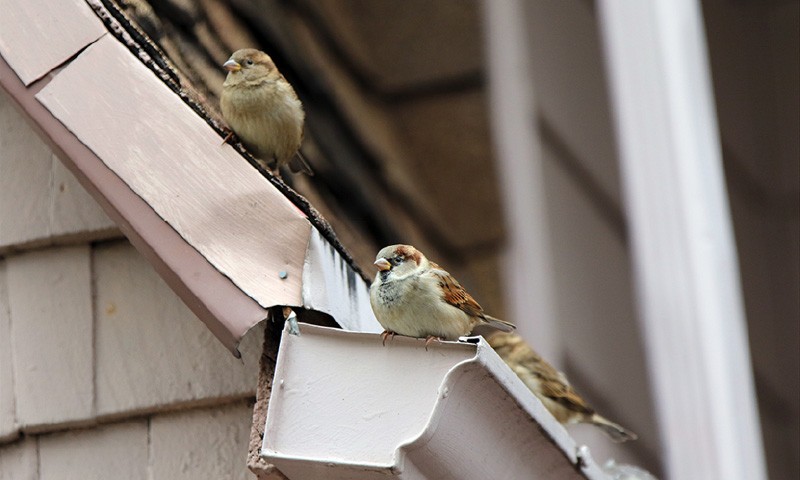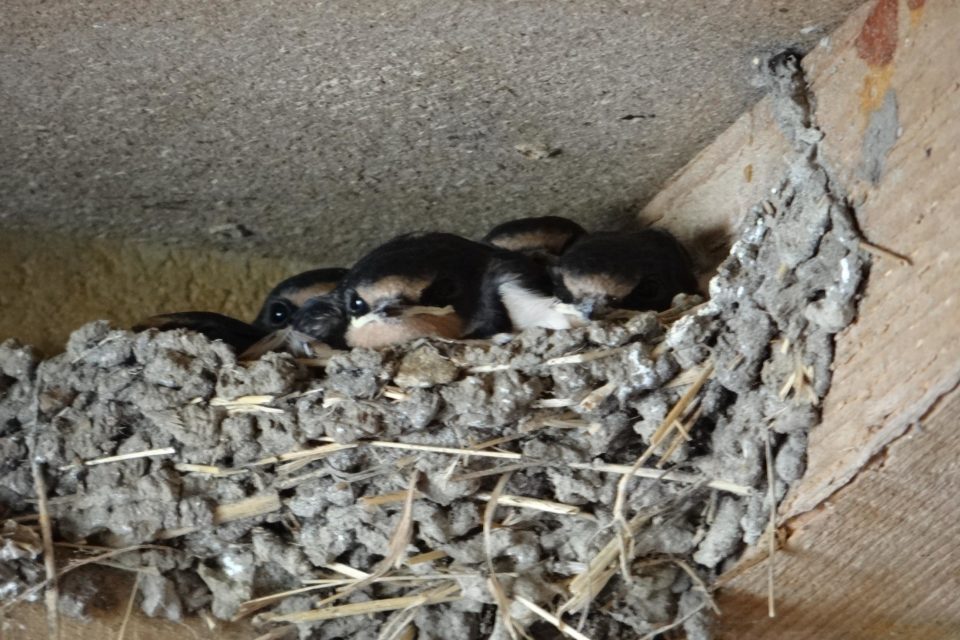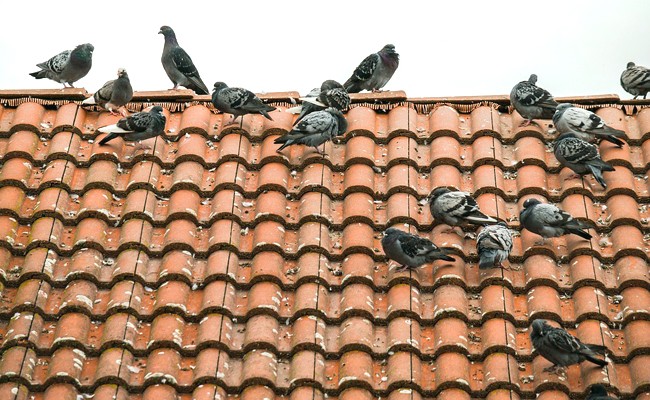Pigeons on balconies and windowsills disturb many people. We reveal how you can drive away pigeons again.
Most often it is urban pigeons that nest in attics, on balconies or windowsills.
Expel pigeons
If you want to drive away pigeons in an animal-friendly way, use measures that appeal to the natural flight instinct of the animals.
This is also triggered in pigeons by smells, noises or visual stimuli.
Keep in mind, however, that pigeons learn very quickly to recognize patterns and soon know that there is no direct danger from a wind chime alone.
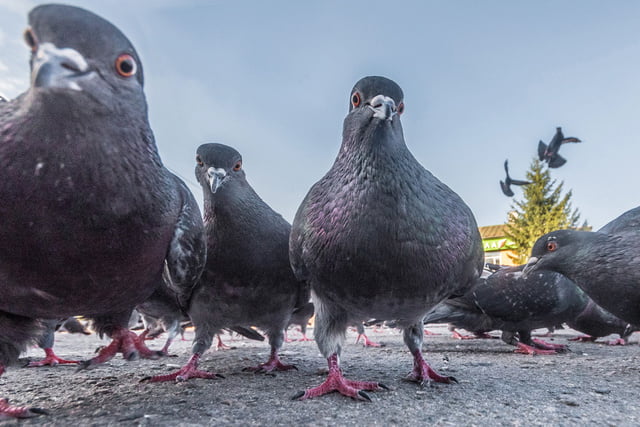
Deter pigeons
The best measure is to deter pigeons from the outset. There are several methods to do this:
- First of all, you can take action yourself and scare the pigeons away whenever the birds get too close.
- Pigeons quickly learn that a balcony from which they are constantly scared away is not an ideal breeding place. However, this method requires vigilance and the ability to defend your balcony even during the day.
- By making sure there are no crumbs or food scraps lying around outside, you additionally take away your balcony or patio’s appeal to pigeons.
- Visual deterrents: flutter bands made of colorful foil strips, pinwheels and wind chimes or a pigeon deterrent made of old CDs: The rapid movement of the objects in the wind and the color changes startle pigeons and ensure that the birds do not dare to come onto your balcony. However, pigeons quickly learn if it is an actual danger. Therefore, reposition the pigeon scarecrows regularly so that no habituation effect occurs.
- Deterrence by enemies: The same applies to ravens or plastic birds of prey, which you can also attach to balconies and window ledges as a deterrent. These plastic birds should also change positions frequently to keep pigeons from getting bright-eyed. It works even better if you let your pet on the balcony regularly: Dogs and cats act in a self-determined and unpredictable way, and the pigeons will certainly not breed where they know predators. Often, just spreading some of the pet’s fur is enough to let the pigeons know that this is not a good area for offspring.
- Acoustic deterrent: This method of scaring away pigeons is particularly suitable for larger areas or gardens. To do this, simply play the cries of various native birds of prey to deter the pigeons. Appropriate sound carriers are available for purchase, for example, in agricultural supplies. However, be sure to show consideration for your neighbors.
- Defense by obstacles: If pigeons keep frequenting your balcony, garden or certain ledges on your house despite all attempts at deterrence, physical obstacles are a good way to prevent the birds from landing and nesting. These include tension wire systems or stainless sheet metal mounted at a 45-degree angle on windowsills, for example.
- Mistakes in driving away pigeons
- If you research how to drive away pigeons, sooner or later you will come across the tip to pour butyric acid on the balcony. You should definitely refrain from this method.
Although the smell of butyric acid drives away pigeons, it is also very unpleasant for people. Especially in apartment buildings, this quickly leads to conflict with the neighbors and thus to more trouble than the pigeons themselves cause.
Hands off plastic spikes or even homemade wooden boards with nails, because they pose a high risk of injury to the pigeons. Nets are also dangerous: the birds can get tangled in them and starve to death.
Removing pigeon droppings
You can remove pigeon droppings yourself. Be sure to wear a dust mask to prevent inhaling dust and fungus, and rubber gloves. Also, wash your hands thoroughly afterwards.
First, pour plenty of hot water on the soiling and remove the droppings with a spatula or a coarse scrubber.
Rinse the droppings with water, ideally with a water hose, but a bucket of water dumped out with a flourish will also do the trick.
To kill germs, now wipe the entire soiled area with household vinegar and then rinse again with water.
Removing pigeon nests
If you have become aware of the pigeon problem too late and the pigeons are already breeding, there is unfortunately no other option than to remove the clutch. Plaster eggs deceive the breeding pigeon, which will drive away male pigeons, at least for the time of breeding, and thus will not lay more eggs.
Then be sure to take deterrent measures before the pigeon comes to you for the next brood. To do this, however, you must be quick, because pigeons breed on average up to four times a year.
Caution: In contrast to urban pigeons, wild pigeons must not be disturbed during breeding. These include the wood pigeon, which looks very similar to the city pigeon.
Do pigeons transmit diseases?
A frequently cited reason for the rejection of pigeons today is the fear that the animals transmit diseases. However, the threat is often portrayed more drastically than it really is: the risk of contracting parrot disease, for example, mainly affects people who deal intensively with pigeons on a daily basis, such as breeders. The trichomoniasis pathogen is also not transmitted by pigeons: humans cannot be infected at all with the type of pathogen that affects pigeons.
Parasites in pigeons
So while the probability of contracting diseases from pigeons is quite low, pigeon parasites pose a greater danger to humans. Bird mites, pigeon ticks and co. can trigger severe allergic reactions with their bite. The ticks can crawl into your home even after the pigeons have disappeared. Therefore, be sure to thoroughly remove all traces of the pigeons.
This includes droppings left by urban pigeons on balconies and terraces. Each pigeon excretes about eight kilograms of droppings per year. If the droppings dry and are swirled up as dust and inhaled, this can cause damage to the respiratory tract.
In addition, yeast fungi can form on the dried bird droppings, which can cause meningitis in humans. The protective measure: be sure to wear a respirator when removing bird droppings.
If all of these deterrent methods don’t work, contact a professional pest control professional or your municipality’s pigeon control officer.
Be sure to refrain from poisoning or otherwise killing the pigeons: this is prohibited by European law.
Except for the polar regions, pigeons occur worldwide. Of the 300 species of pigeons in the world, just five species live in our latitudes, including the wood pigeon, the turtle dove, the Turkish pigeon and the city pigeon. City pigeons are descended from feral domestic and carrier pigeons.

